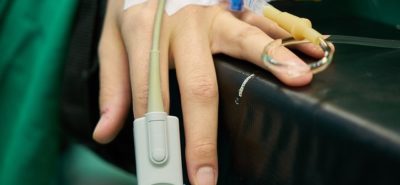Robotic surgeries were used in more than 350,000 operations in U.S. hospitals in 2012 – a 60 percent jump since 2010 – and half of general surgeons plan to add robotic surgery systems to their capabilities within the next two years. Yet despite the increased use of robotic surgeries, some medical experts question whether they are adding any health benefits to patients and whether they might, in fact, be putting patients and risk.
Robotic surgery is most commonly used to perform hysterectomies, gall bladder removals, prostate cancer treatment, heart valve operations, and many other soft tissue operations. And the rise in robot-assisted surgeries has been fueled, in large part, by aggressive marketing by doctors, hospitals, and Intuitive Surgical Inc., the company that makes the $1.5 million robot that performs many surgeries. Advertisements on hospital and doctor websites, billboards, radio, and television tout the advantages of robotic surgeries without adequate proof to support such claims.
Not only have robotic surgeries not been proven in randomized trials to offer significant health benefits compared to standard, less-invasive surgery, but several studies have shown that they can cost thousands of dollars more than less-invasive surgical options. In fact, a 2011 study by doctors at Johns Hopkins School of Medicine found that 164 hospital robot-surgery websites surveyed “overestimate benefits, largely ignore risks and are strongly influenced by the manufacturer,” according to research in the Journal for Healthcare Quality.
According to Bloomberg News, the FDA began surveying surgeons about robotic surgeries in light of an increase in the number of reported adverse events, including 70 deaths since 2009. In fact, Bloomberg says that reports of injuries linked to robotic surgery more than doubled in the first eight months of 2013 compared with the same period in 2012. Moreover, according to a new study by researchers from Johns Hopkins, complications from robotic-assisted surgeries have gone “vastly underreported.”
Last July, the FDA issued a warning letter to Intuitive Surgical after an inspection found that the company did not adequately report device corrections and patient adverse events in some cases.
Business Insider provides some of the following startling statistics regarding the dangers of robotic surgeries:
- A total of 245 events were reported to the FDA from 2000 to 2012, including 71 deaths and 174 non-fatal injuries.
- Of the 71 deaths, 22 were related to gynecologic procedures, 15 urologic, 12 cardiothoracic (chest), 10 otolarngologic (head and neck), 3 colorectal (colon/rectum), and 3 general surgical.
- The cause of death was hemorrhage in 21 cases, sepsis in 10, cardiac arrest in 9, multi-organ failure in 5, and pulmonary embolus in 2. There was one case each for bilateral tension pneumothorax, ischemic stroke, narcotic overdose, and necrotizing fasciitis. 20 cases were not reported with the cause of death.
- A study showed that only 37% of the U.S. hospitals that have robotic surgery on their website mention any potential risks or complications.
Patient who are considering robotic surgery should make sure to gather all the necessary information regarding the procedure, including any less-invasive options. Given the marketing initiatives employed by the Intuitive Surgical, the manufacturer of the robot that performs surgeries, it is important that patients ask their doctors questions and be their own best advocate when to comes to medical treatment.
If you were injured or a loved one died during a robotic surgery, you may have a medical malpractice or product liability cause of action. Contact Cogan & Power, P.C. at (312) 477-2500 to speak with one of our skilled Chicago surgical malpractice attorneys.

